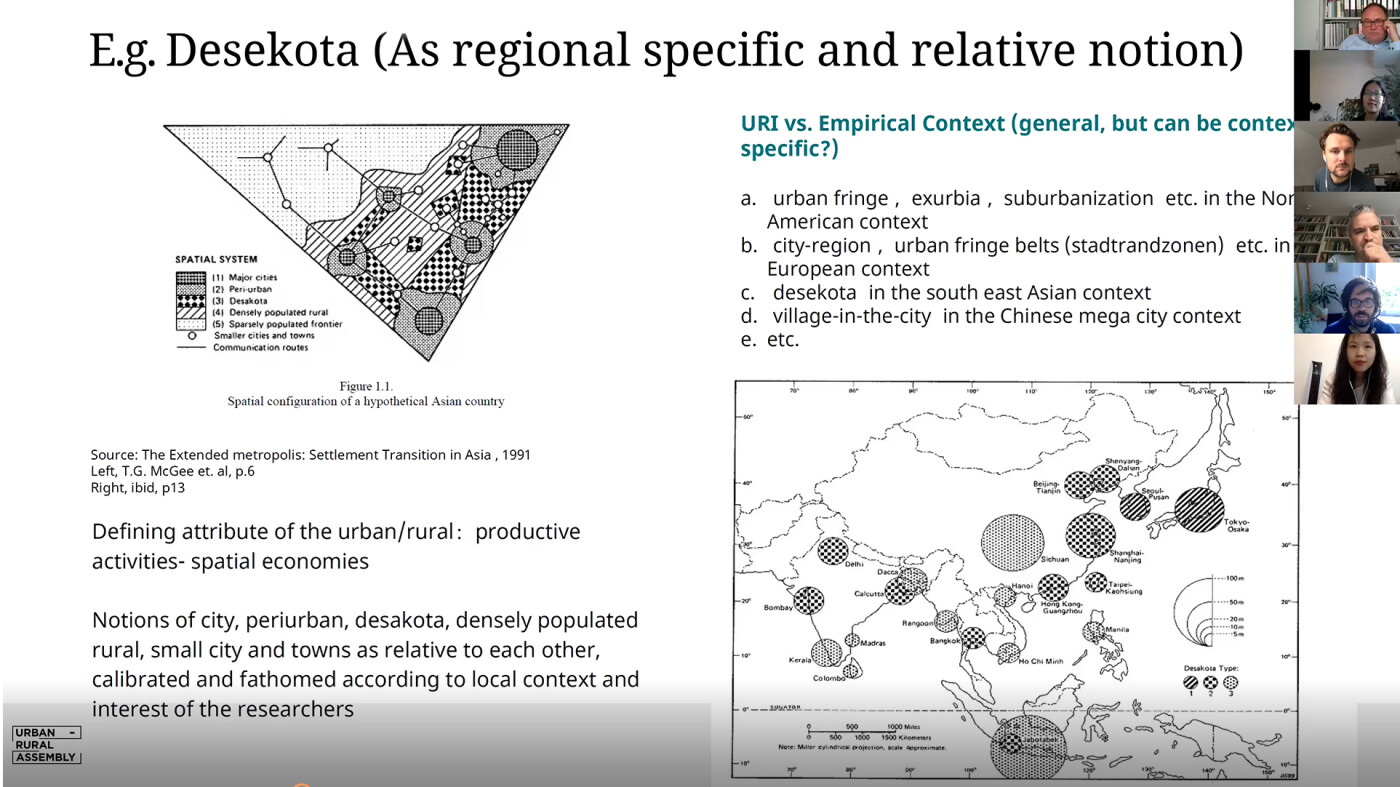URA Consortium Workshop Berlin #7 (via Zoom)

On the 15th of July 2020, the URA German consortium members met on Zoom to discuss key conceptual notions within the urban-rural interface discourse and the Raumbild approach. In addition, the team evaluated the progress of data collection and management.
The meeting commenced with a literature review by Xiaoxue Gao (Habitat Unit, TU Berlin) on urban-rural interface discourses, raising key questions relating to the interdisciplinary development of the URA project. For example, how can we integrate disparate research disciplines into the project’s conceptual development? Furthermore, how might the local context inform our conceptual framework and approaches? The discussion addressed various competing and complementary terms within the discourse, such as ‘urban-rural assembly’ and ‘integrated urban-rural development’. In addition, the varying purposes of these concepts were deliberated, such as facilitating analysis, guiding practice, or responding to political discourses.
Following this, Hannes Langguth (Habitat Unit, TU Berlin) delivered a presentation on the genealogy of the Raumbild approach in the context of Germany. This generated discussion of how to adapt such ideas and tools to local cultural and institutional frameworks in Huangyan-Taizhou, particularly the challenge of public participation. Maria Frölich-Kulik (Bauhaus Universität Weimar) subsequently presented the team’s collaborative mapping outcomes, demonstrating how they may be applied through the Raumbild.
During the final session on data management, Till Fügener (IOER Dresden) and Lukas Utzig (CCST, TU Berlin) elaborated on the team’s current data sets in terms of storage, structure, and processing within QGIS, whilst Xiaoxue Gao described the current status of the overall data inventory.